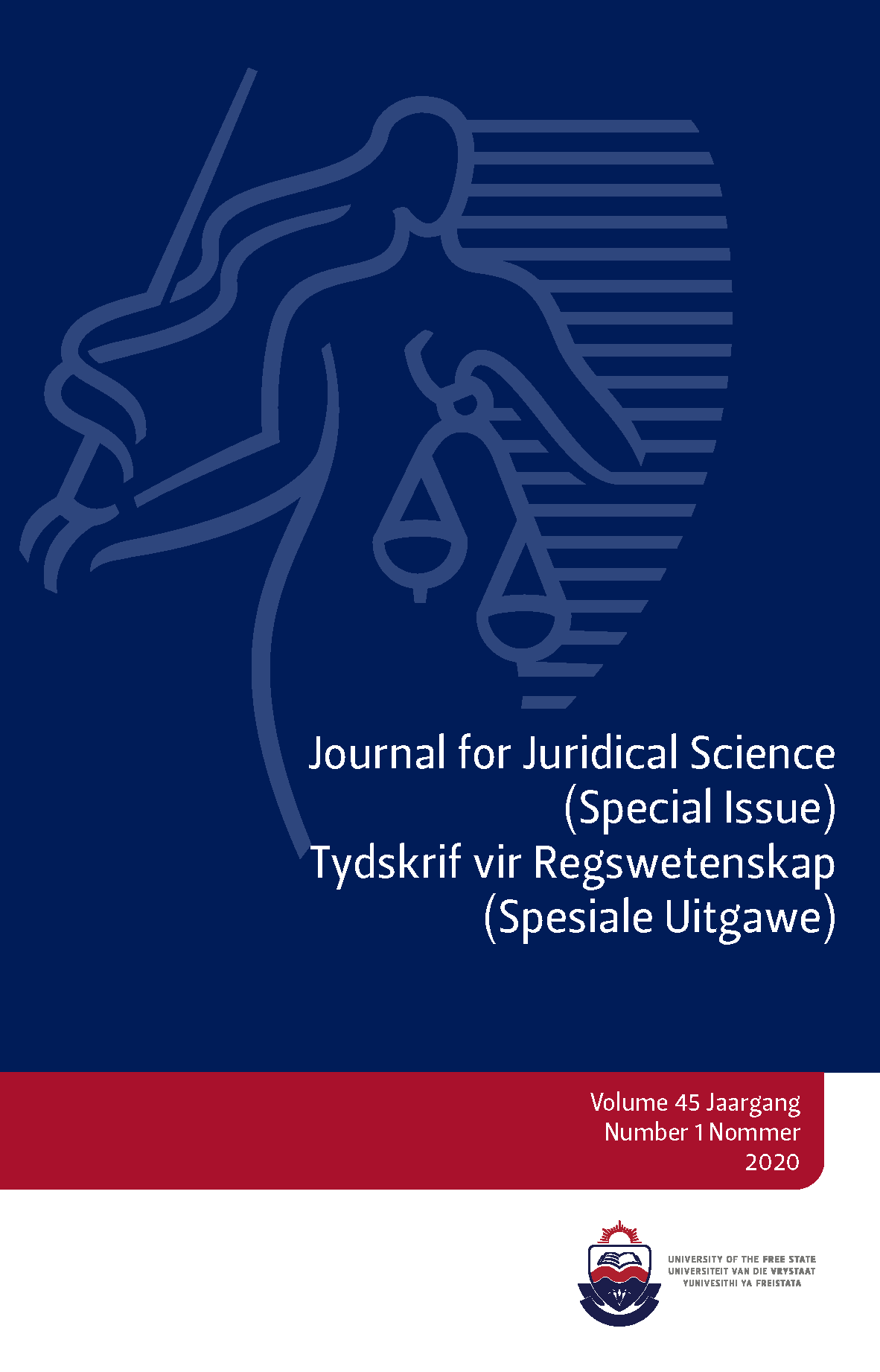Right to development in Africa and the common heritage entitlement
DOI:
https://doi.org/10.18820/24150517/JJS45.i1.2Abstract
This article examines the common heritage entitlement as a requirement for the realisation of the right to development enshrined in the African Charter on Human and Peoples’ Rights (“the African Charter”). The question has been asked over and over again as to why Africa remains poor and underdeveloped, given that the continent is not lacking in the natural resources required to create development. In this register, the apparently rhetorical concern is situated within the context of the law and development discourse, wherein African legal scholars and practitioners are implored to consciously use the law as a tool to achieve the kind of development that seeks to improve quality of life, eradicate poverty, equalise opportunities, enhance freedoms, and maximise human well-being. The article responds to the enquiry from the angle of the right to development that entitles the peoples of Africa to socio-economic and cultural development, which, in essence, invokes the natural resource requirement for the attainment of that purpose. Despite the undertakings by state parties to the African Charter and the rulings in the cases that the African Commission and the African Court have dealt with on the question of natural resource ownership, prevailing realities across the continent present a worrying situation that demands a closer study of the common heritage entitlement, which guarantees that all the peoples of Africa can legitimately assert the right to socioeconomic and cultural development. This article sheds light on the subject, which evokes the central question: Who owns the natural resources that make up the common African heritage?




